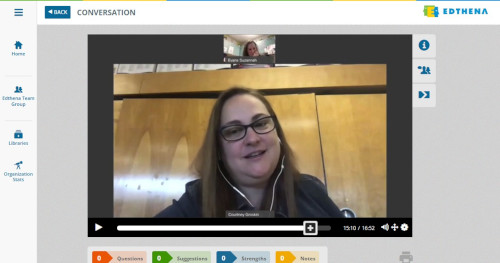3 ways coaches can refine their practice this school year

When teachers and leaders have effective coaching, student outcomes inevitably improve. According to Rebecca Frazier, author of Coach Happy, coached teachers outperform non-coached teachers in 22 areas of instructional practice by four to five times.
Effective coaches must possess the ability to actively listen, decipher teachers’ needs, and build capacity based on the strengths of teachers. All of these skills take a huge amount of cognitive load for a coach and require intentional practice.
While some of these skills might be a little rusty after a summer off, the beginning of the school year is the perfect time to focus on coaching practices. Below are three ways for coaches to get started.
Elevating Practice with Meta Coaching
Meta coaching is a structure where the coach coaches the metacognition of another coach. During this process, the coach who is doing the meta coaching will observe another coach during an authentic coaching conversation.
When I had my first meta coaching conversation, the meta coach scripted all of my paraphrases. And, it wasn’t until then that I realized that my paraphrases were too long. This helped me to work on shortening my paraphrases down to a few words, which helped improve my coaching.
A meta coach can collect data during the coaching session in a number of ways, such as by scripting the paraphrases, questions, and responses of the coaches. When scripting a paraphrase, for example, the meta coach will jot down the paraphrase that is used so the coach can go back and analyze the paraphrases used during the conversation. Scripted questions can additionally help a coach reflect on the type of questions used, the content within the question, and the response elicited from the question.
Another example is documenting the time between pauses. Often, pauses feel really long during a coaching conversation when in reality they are much shorter. Having the ability to see the exact timing of how long the pauses are helps coaches get an idea of whether or not they need to leave more time for pausing during a conversation, which is important for allowing the coach time to think and listen. After the coaching session is done, the meta coach and coach can meet to engage in a reflecting conversation.
Checkout latest world news below links :
World News || Latest News || U.S. News
Source link



